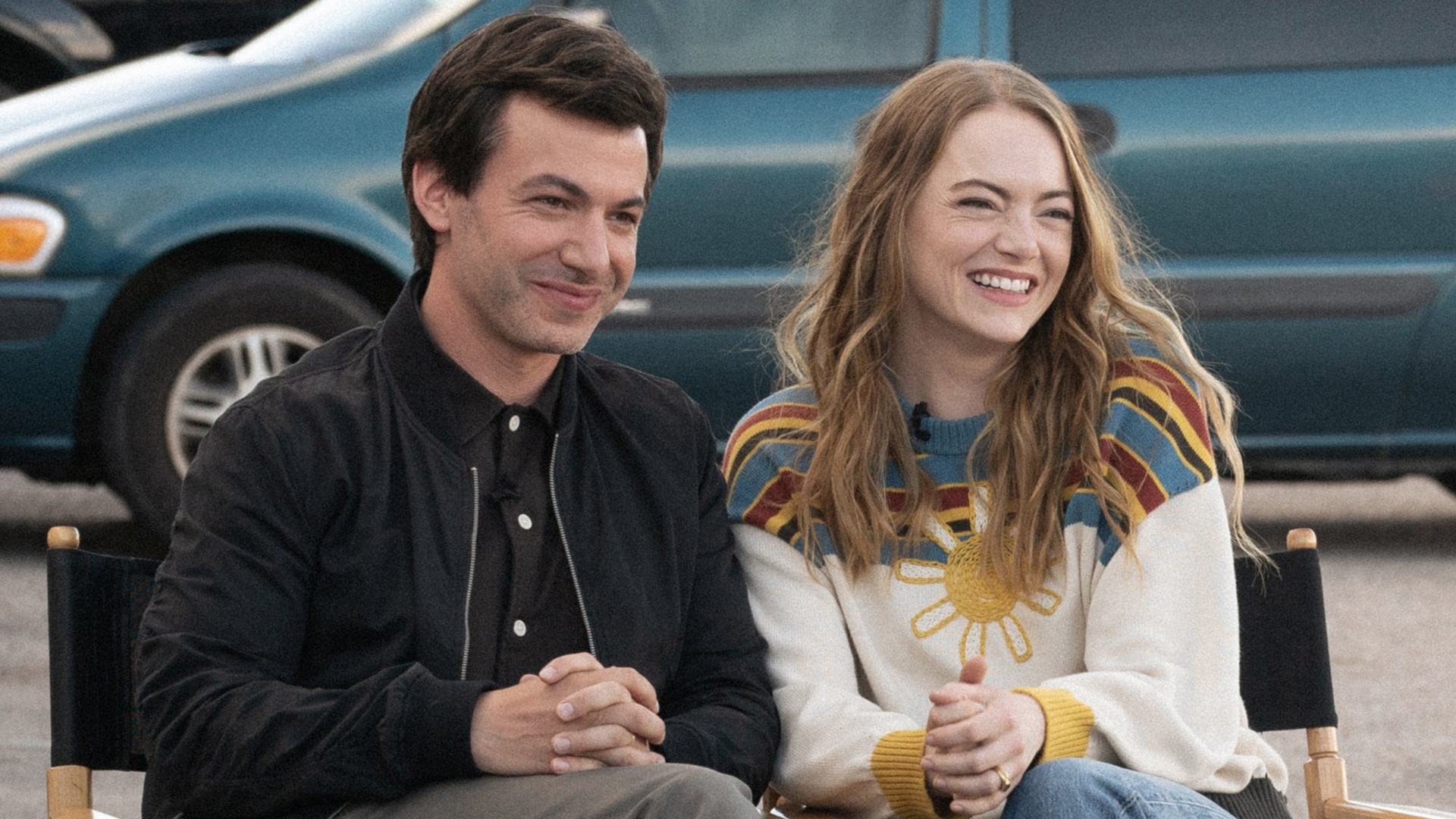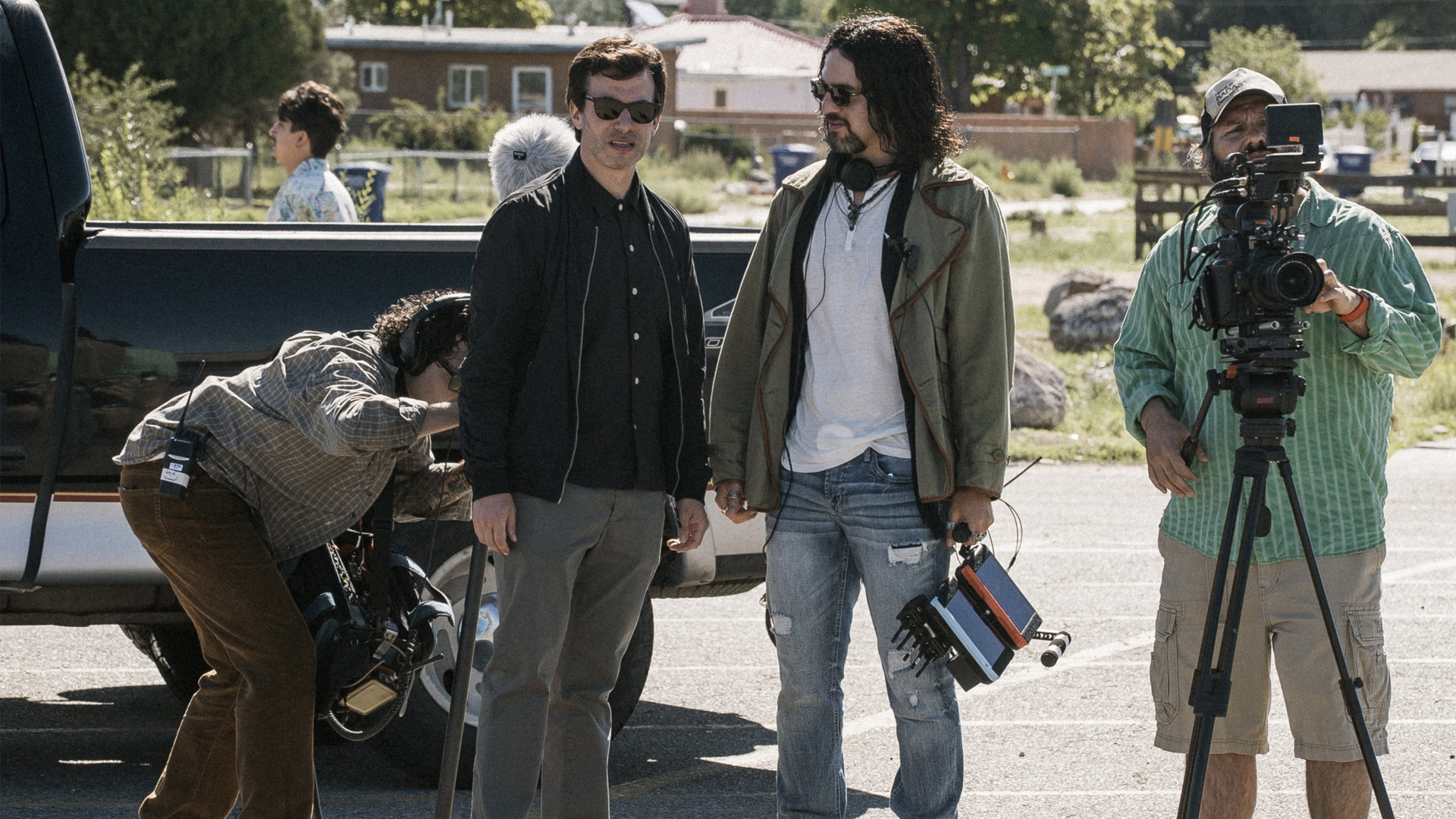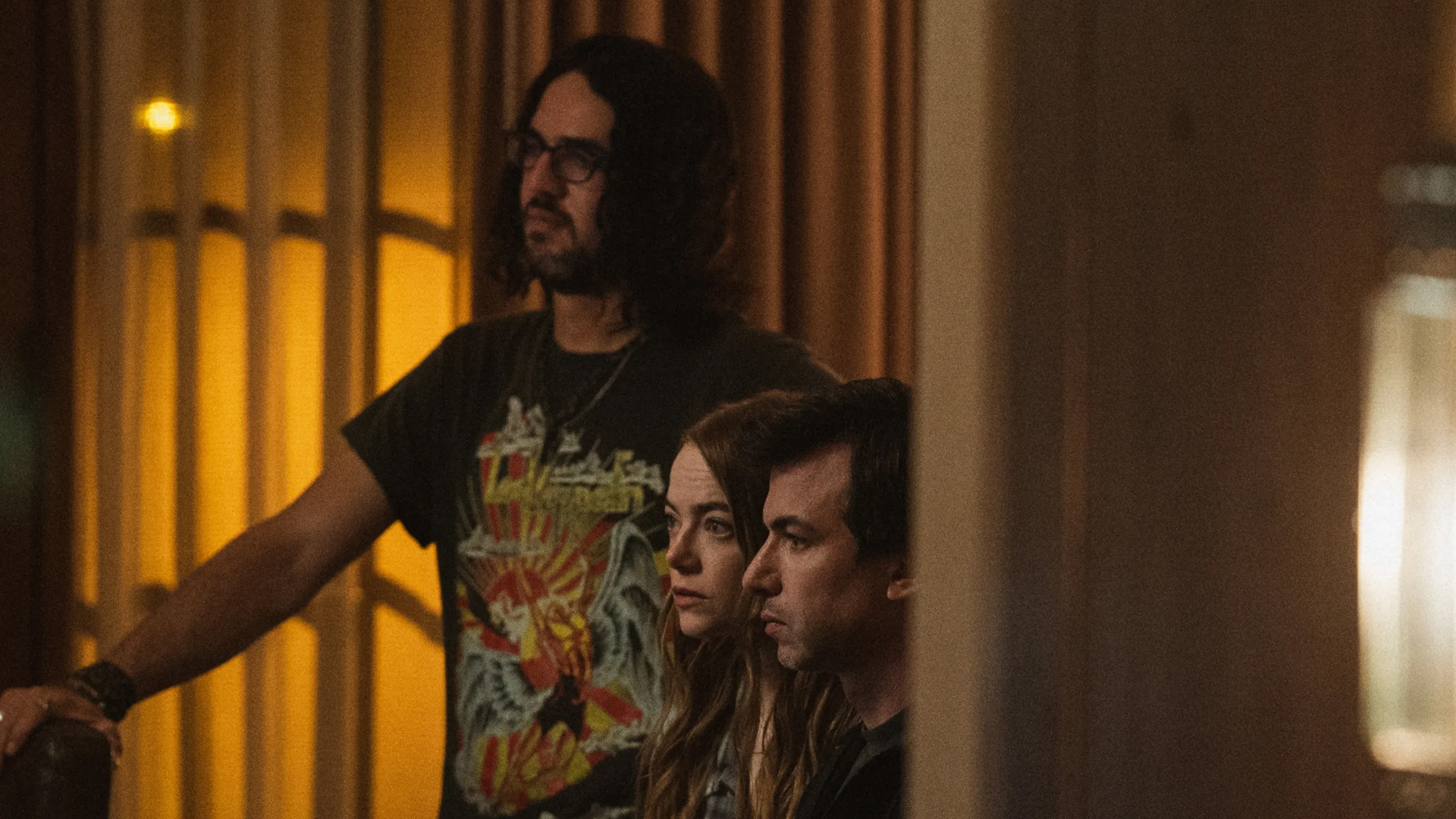Nathan Fielder’s The Curse is awkward, complicated and much, much weirder than you imagine
It’s a show dripping with talent – Nathan Fielder, Emma Stone, Benny Safdie and… Corbin Bernsen?

Nathan Fielder teams up with Emma Stone and Benny Safdie for a new genre-bending show that’s already generating plenty of chatter. All of Fielder’s past work feeds into the first ep of The Curse, reports an impressed Tony Stamp.
There’s a scene two-thirds of the way through episode one of The Curse that is going to get a lot of chatter. I won’t spoil it in case you haven’t seen it yet, but if you have, you probably know the one I mean (it involves a part of someone’s anatomy). And doing some cursory searching on Twitter, I found a lot of people think they saw something they didn’t. They seem to think Asher Siegel, the character played by Nathan Fielder, is identical to the actor in ways he almost certainly isn’t.
When the moment happened, I wasn’t sure why it was included. But in hindsight, this is why: Fielder’s whole career has been about playing versions of himself, and muddying the line between fact and fiction through the prism of reality TV. And even now, playing a fictional person, he’s managed to confuse people about the distinction.

Fielder began his career writing on Canadian Idol. He followed that by appearing in a segment called Nathan On Your Side, as part of the comedy show This Hour Has 22 Minutes. It saw him interviewing members of the public, and laid the groundwork for the show which brought him worldwide success, Nathan For You.
That series feigned at helping people improve their business, with Fielder the host orchestrating ludicrous ideas like poo-flavoured yoghurt to create buzz, a Starbucks knockoff called Dumb Starbucks, and arranging free labour for a moving company under the guise of an exercise fad.
A running theme through the show, and the source of much of its comedy, was Fielder’s social anxiety, as he played a version of himself with all the awkwardness dialled up. Still, accusations that he was exploiting the folks who’d agreed to appear were quick to arise, and over its course, Nathan For You began to reflect those concerns.
Then came The Rehearsal, a similar prospect with Fielder helping people rehearse important moments in their life, which soon refracted in various metatextual ways, and (possibly to accommodate the pandemic), turned into a hall of mirrors focused squarely on its host.
All of this feeds into The Curse, as Fielder once again plays the onscreen face of a reality TV show. Asher Siegel and his wife Whitney (Emma Stone) are launching a line of eco-conscious housing in the town of Española, New Mexico. And Asher’s childhood friend Dougie Schecter is producing a show about it.

He’s played by Benny Safdie, who co-wrote the series with Fielder, and co-directed films like Uncut Gems and Good Time (not to mention starring in films like Oppenheimer). Schecter is a classic Safdie character, dressed in retro rocker garb, and perpetually greasy, both literally and morally. He’s pretty clearly despicable from the moment we meet him, engineering drama for his show, and recording things he shouldn’t be.
Are the Ashers much better though? Their veneer as friendly liberals is quickly punctured during an interview with a local news outlet, changing on a dime when Whitney’s parents are mentioned (with an accusation they are slumlords). Stone plays panic expertly, various fight-or-flight responses playing across her face as she tries to stay calm.
Asher loses his cool though, with Fielder giving an expert portrayal of someone not used to being disagreed with. It’s one of many ways this character is new for him. We are quickly shown his myriad insecurities: racial, sexual, political. Episode one goes much deeper into this than I’d expected, and in much more shocking detail.
Whitney remains something of an enigma, but I’m sure that will change in future episodes. She’s also played by one of our most watchable actresses, riveting in the many scenes she’s forced to stay bottled up. In one particularly self-reflexive moment, Dougie tells her when people see her on TV, they’ll be “dreaming about being with [her]”. Her response flashes through disgust, fear, then resolve. He’s a creep, but she has to make the show.

The Curse was marketed as a horror series, as befitting its title, and in many ways it is. As directed by Fielder, the first episode frames its characters between bars or in reflections, slowly zooming in on their faces. It’s shorthand for creating dread, but relates to its subject (and its co-creator’s background), in the way it emphasises voyeurism. It often feels like we’re spying on these people.
The Ashers are often caught in long shots that include the local townsfolk around them, mostly Hispanic, stressing the difference between these affluent newcomers and the working-class population. Their apparent discomfort around them is sometimes played for laughs, but also betrays their self-serving ambitions.
The curse of the title comes from a small girl who Asher gifts $100, as a display of generosity for the cameras. He tries to renege once they’ve stopped rolling, and she curses him. He relays this to Whitney, who takes it much more seriously than he does. Were I a betting man, I’d say nothing supernatural will come of this, but it will destroy their relationship regardless.
It’s a show dripping with talent, (including appropriately unsettling music overseen by Daniel Lopatin AKA Oneohtrix Point Never), and is consequently rich in detail and texture. Awkward, complicated, and much, much weirder than you might imagine, it’s the sort of show you’ll want to discuss with friends as soon as it’s finished.























